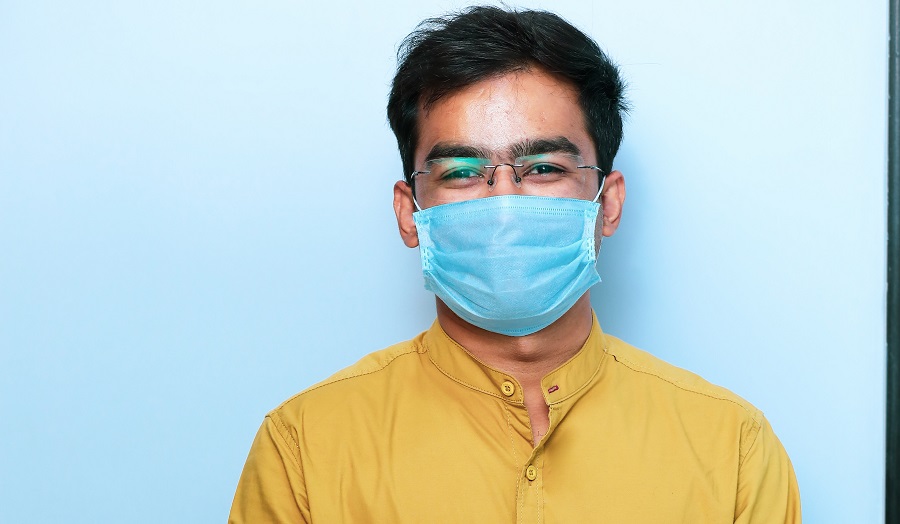Dr Una Fairbrother discusses the efficacy of masks in reducing Covid infections and why we’re asking all students and staff to ensure they wear face coverings while on campus.
Date: 13 January 2022
We highly recommend all students and staff wear masks or face coverings while on campus.
Wearing a mask has been shown to reduce infection rates for both the wearer and for others who may be more vulnerable. Since the start of the pandemic, London Met's first priority has been keeping its students, staff and wider communities as safe as possible, while minimising disruption to the university experience.
How do masks work?
Covid-19 is transmitted primarily through the air by droplets and aerosols that are exhaled from the nose and mouth of an infected person. Face coverings protect the wearer and play a significant role in reducing transmission and infecting others. A recent study from scientists at the Universities of Oxford, San Francisco, Brown, Stanford, and others, concluded by recommending that 'public officials and governments strongly encourage the use of widespread face masks in public, including the use of appropriate regulation.' This is even more important with the highly transmissible Omicron variant.
Masks act as a barrier to expiratory droplets which we all disperse when we talk, breath, sneeze, sing or cough, and reduce the distance they can travel, and the amount of droplets which can escape into the surroundings.
Not every mask is created equal, however. An FFP2/3 mask (N99 or N95 in the US) is the most effective against Omicron. It works by filtering out both large and small particles as the person wearing the mask breathes.
Among fabric masks, the most effective ones are those with a nose wire and are made of three layers of tightly woven fabric such as cotton. The three layers are more effective at stopping droplets getting through your mask, or escaping from it if you are unknowingly carrying Covid yourself.
Correct use and cleaning of your mask will also have an effect on how well they work. Follow these steps to ensure you, and those around you, are as protected as possible:
- Wash your hands before and after putting on your mask.
- Make sure your mask covers your mouth and nose.
- Make sure the mask is snug on your face by tying it closely around your ears.
- Try not to touch your mask while wearing it; and if you do, wash your hands when possible.
- Put on and take off your mask using the strings—try to avoid touching the part that covers your nose and mouth.
- If you're using a reusable mask, wash it daily.
While masks are effective, they should be used in conjunction with other strategies to mitigate the spread of Covid. Social distancing where possible, testing twice a week, and ensuring you keep up to date with your vaccinations and boosters are also important components to reducing infection levels, and keeping our community safe.

